Saga of the Melody Queen
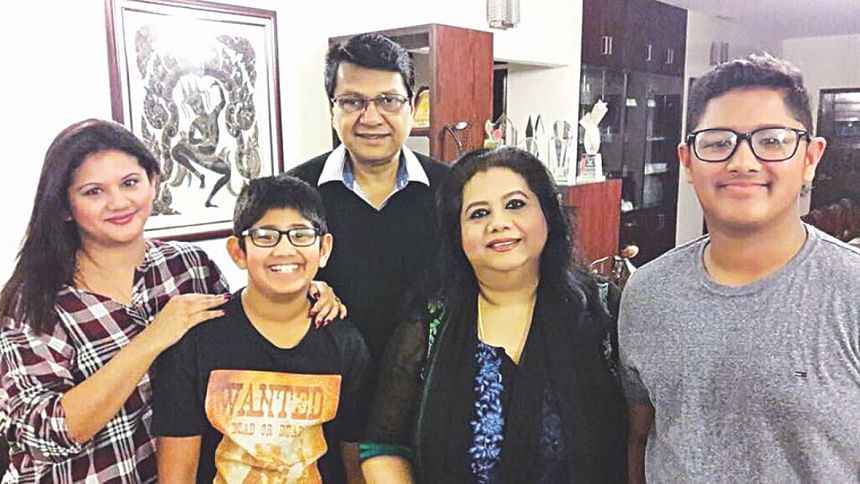
One of the most prominent singers of the subcontinent, Runa Laila has ornamented over ten thousand songs with her mesmerizing voice. Bangladesh takes immense pride in the songbird, who has won the 'National Film Award' multiple times, along with numerous other accolades in her singing career spanning over 50 years. Throughout the journey, Runa Laila has presented her fans and followers with countless Bangla, Hindi and Urdu songs, which are to remain evergreen in the minds of the true music lovers.
The journey begins
The artiste's journey, interestingly, began with lessons of dancing. Runa Laila took lessons of Bharatanatyam and Kathak style dancing from the Bulbul Academy of Fine Arts in Karachi, Pakistan. Even now when she performs in the live shows, bits of dance moves here and there still amaze her audience. However, she did not pursue this art form for long. Her elder sister Dina Laila had a singing tutor who would come to their house to teach. Runa was still a child of four or five years of age, when her elder sister's singing classes had deeply motivated the music connoisseur. She would often join the class with sheer enthusiasm and try to learn whatever was being taught. Music had always had a precious corner inside her heart. A devotee, Runa would often try to sing what she heard on the radio. Such a god-gifted voice did not take long to get noticed, and soon Runa came under the mentorship of singing maestros like Abdul Kader, Habib Uddin Ahmed, Ghulam Kader and many more.
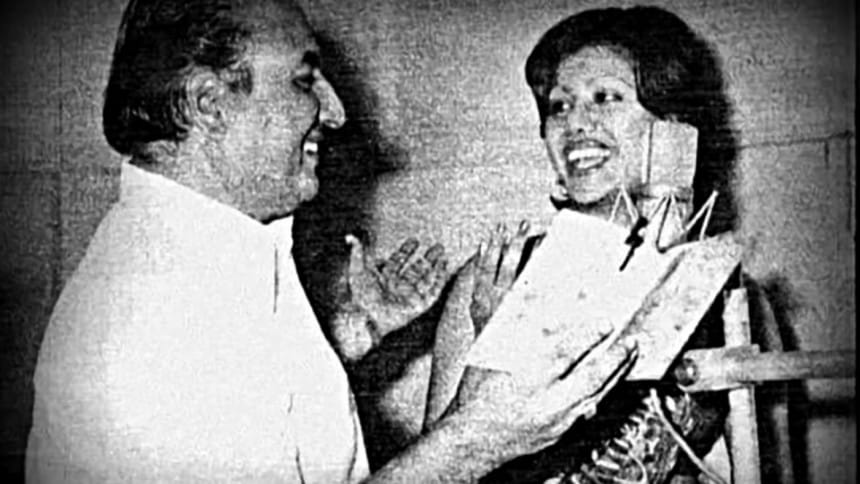
When she was 12, Runa received her first singing offer from the silver screen industry. It was a playback offer for the movie Jugnu, where she would sing the song titled Gudia Si Munni Meri. At that time, the film industry was not generally taken to be an ideal place for developing a career. However, her deep passion enabled Runa to get permission from her family. After a whole month's preparation, in June, 1965, Runa Laila recorded her first playback under the guidance of music director Monzur Hossain. This marked the start of an epic journey that has gone on to create history in the years to come. But even before this, Runa had already made a name for herself in a live program organized by the Dhaka Old Boys Association. As her elder sister fell sick in the last moment, six year old Runa bravely took over and left all the audience awestruck with her delightful singing.
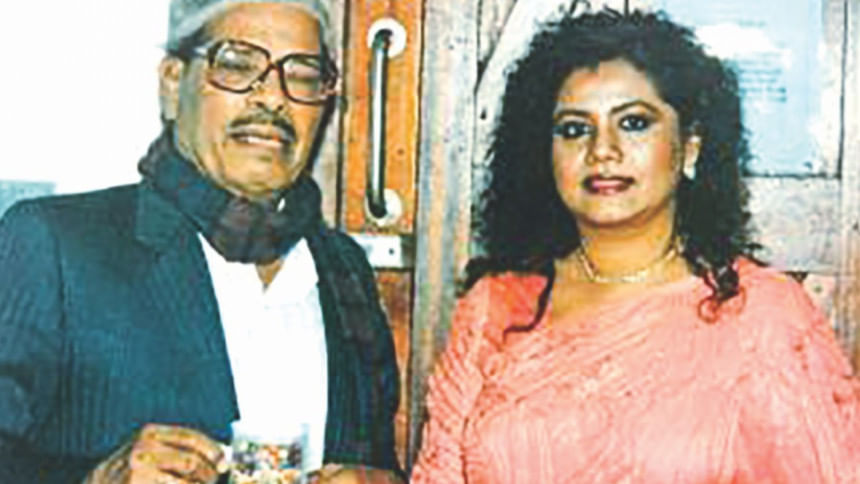
Coming home
In 1974, Runa Laila moved to Bangladesh along with her family. Coming back to her own roots had been very emotional and spiritually uplifting for the songstress, as she went on to refuse all the lucrative offers of returning to Pakistan or singing for the Urdu music industry. Runa wholeheartedly dedicated herself for the betterment of Bangla songs and the Bangla music industry. By then she had given voice to a significant number of Urdu songs, but all that fame seemed like nothing when the call from her roots reverberated within. She completed her graduation from the University of Dhaka, while running busy schedules of playback recordings and live programs. There were even phases in her life when she had to take part in sessions stretching up to 12-15 hours. After returning to Bangladesh, her first playback was for the movie Jibon Shathi. Shortly after, Runa Laila was invited on a tour of India by the ICCR. Since then the famous title The Damadam Girl, presumably for her outstanding singing of Damadam Mast Kalandar, was put like a crown to her name. Runa Laila sang for the Hindi movie Ek Se Badhkar Ek, which was her first Hindi debut.
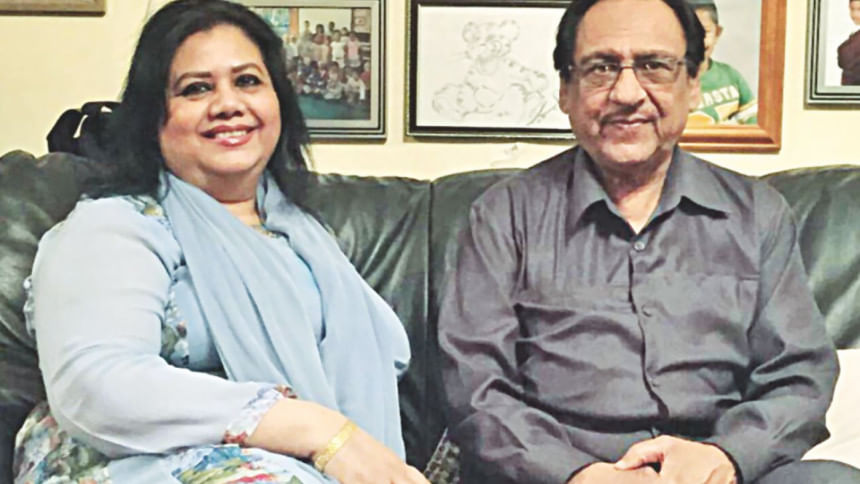
Breaking boundaries
An epitome of uniqueness and forever a style icon, Runa Laila hit the then conservative mindsets of the TV show organizers hard with her fashion and on-stage appearance. The bold diva in her twenties did not hesitate to show up on her own show titled Bazm E Laila wearing shirt-pants or maxis. For her, it was only a part of being her true self. And no wonder her confidence won over all the criticism and broke the walls of cultural conservatism. Till this day Runa Laila often designs her own clothes. Fashion designing has somewhat been like a hobby for her. Credit to her dauntless attitude, Runa Laila's name has been written on the Guinness Book for recording 30 songs within 3 days. In fact, this is not the only record she holds. In 1982, Runa Laila won Golden Disk Award as her album Superuna composed by Bappy Lahiri was sold over 1 lakh copies on the very first day of its release.
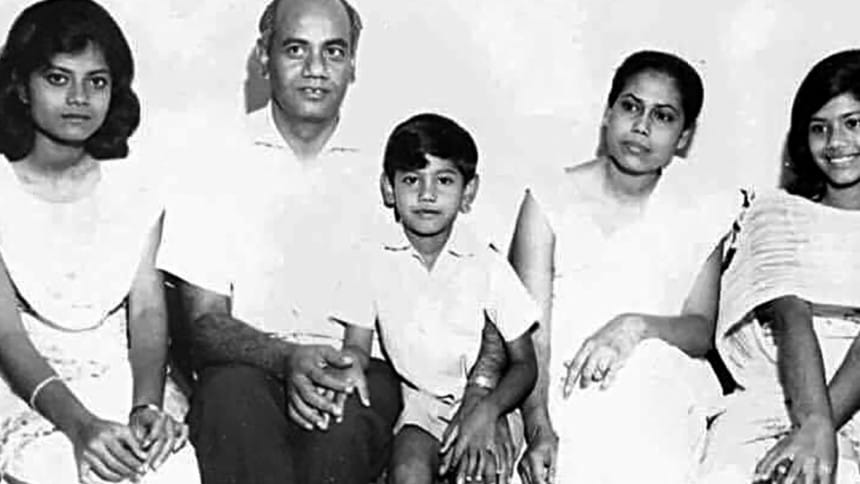
With her brilliant display of combining hard work with natural talent, Runa has taught herself to sing in over 15 different languages. So far the songster has sung in Arabic, Japanese, Spanish, French and many other languages. For her inborn charm and innate charisma, Runa Laila has received numerous offers for acting as well. From both India and Pakistan, directors, including the noted Indian actor, producer, director Raj Kapoor, approached the talented diva to grace their scripts. However, Runa has always kept her priorities straight. She has appeared in only one film, the 1995 smash hit Shilpi, that too because it had connections and resemblances to her real life.
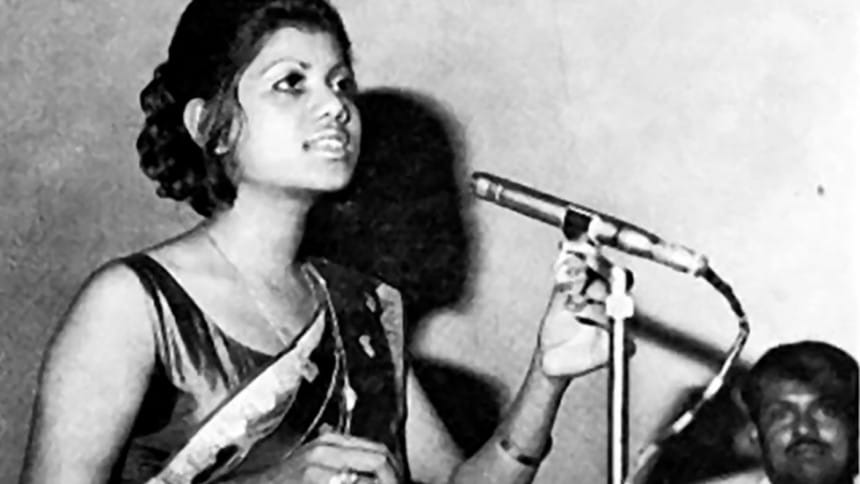
Holding on to her roots
In her decorated career, Runa Laila has achieved such height of fame and recognition that most artists can only dream of. She has voiced the magical lyrics of some of the globally renowned lyricists and performed duet with singers at the similar altitudes of success. Her list of favorite co-artists includes Subir Nandi, Andrew Kishore, Kumar Shanu and few more. Composers and lyricists like Ahmed Imtiaz Bulbul, Alauddin Ali, Subol Das, Bappa Mazumdar, Emon Saha have adorned the career of Runa with their magnificent creations. Runa Laila had had the privilege of sitting in the chair of Main Judge in Zee TV's time winningtalent show Sa Re Ga Ma Pa. She also appeared as one of the judges in Zee Bangla's singing talent show.
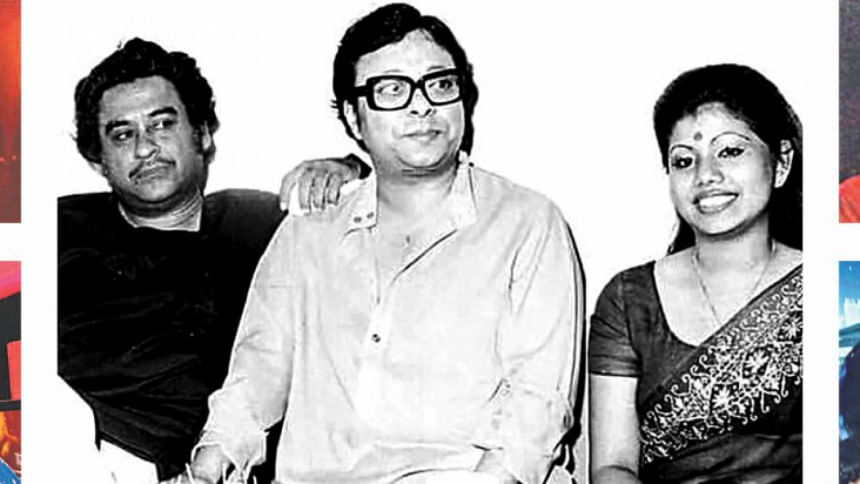
In Bangladesh, she performed the solemn duty of mentorship and judgment in Channel i's Sherakantho and Channel 9's Power Voice talent hunt programs. The winner of such achievements and recognition still has her feet firmly on the ground, as she believes modesty, sincerity and dedication can help any true devotee to exceed their limitations, if only pride is denied with a gentle smile in every step. Runa Laila thinks, for the new generation of singers, consistency has to be attained along with vocal techniques. And the newcomers have to have a learner's attitude all the time, ready to accept their faults and rectify those at any cost.
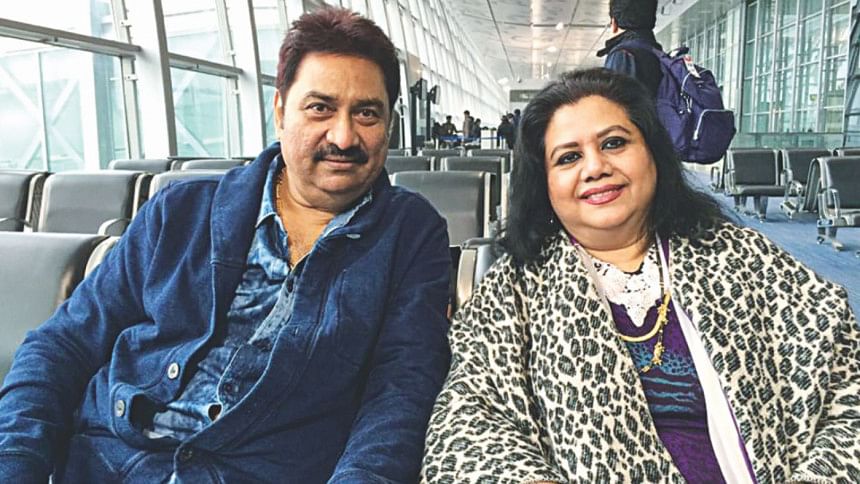
Flying high
The colorful journey of her career has taken her all over the world. From Madison Square Garden to Sydney Opera House, from Europe to Africa – the veteran has stepped on proudly carrying the legacy of Bangladesh, and mesmerized her audience like a routine work. But the height of popularity never got Runa Laila over the clouds, for her attention has only and only revolved around her love for music. The benevolent artiste has taken part in countless charity programs, has worked as an ambassador for SAARC and UNAIDS to create awareness against mortal diseases.
She has also funded to establish a children's ward in Dhaka Children's Hospital for children with cancer. The songbird plans to continue her phenomenal playing with notes and beats as long as she sounds in proper tune to her own self. Only if one morning she realizes her keys are not hitting straight and bold, she will then consider resting her voice.
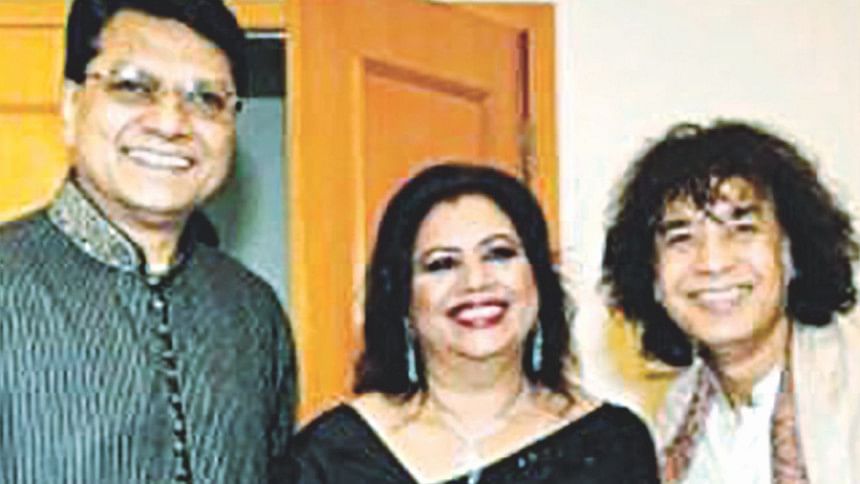
RUNA LAILA'S GRANDEUR
DISCOGRAPHY
Sincerely Yours- 1973
Runa Laila Sings Songs Of Talib-Ul-Maulla- 1974
Great Ghazals- Runa Laila (Style) – 1981
Runa in Pakistan (Geet) and (Ghazals) (1980)
Bappi Lahiri Presents Runa Laila - Superuna - 1982
Runa Goes Disco- 1982
Sings For Umrao Jaan Ada
(Ghazals)-1985
Ganga Amar Ma Padma
Amar Ma – 1996
Bazm-E-Laila-2007
Runa Laila-Kala Siah Kala- 2010
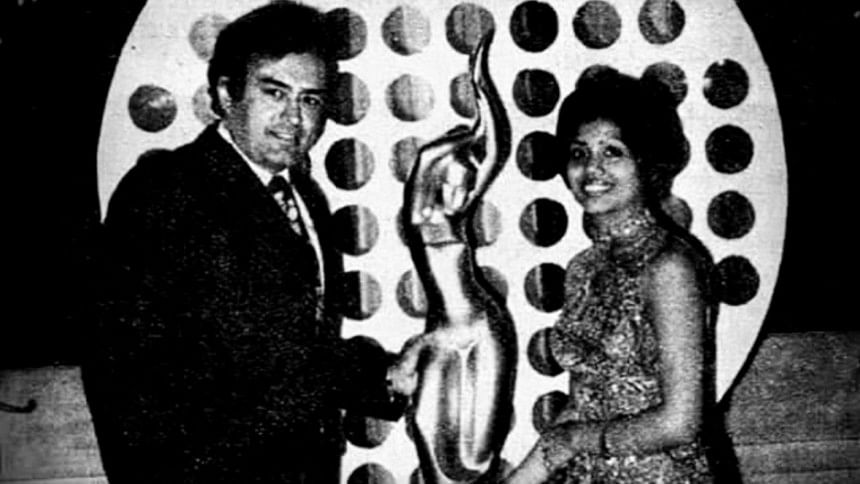
LIST OF SONGS BANGLA
Bondhu Teen Din
Barir Manush Koy Amay
Shadher Lau Banailo
Shilpi Ami Tomaderi Gaan
Allah Megh De Pani De
Eka Eka Keno Bhalo Laage Na
Gaaner-i Khatay Shorolipi
Khanchar Bhitor Achin
Looke Bole Bole Re
Here Gechi Aaj Ami
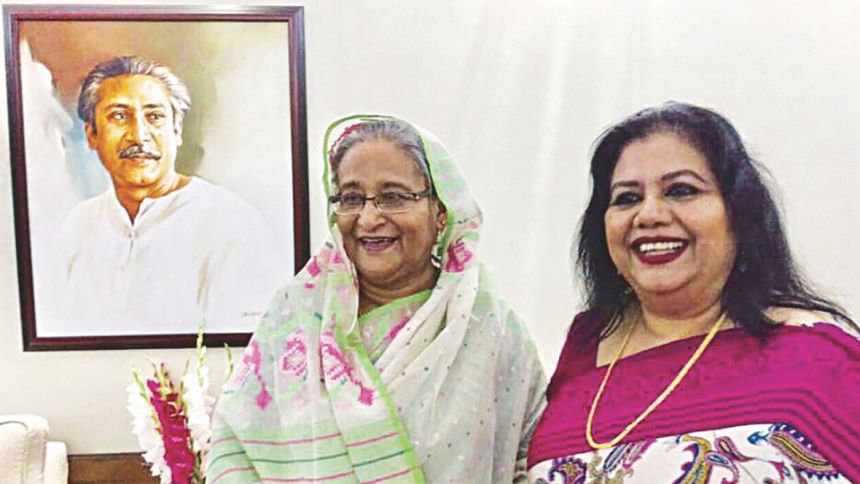
HINDI
De de Pyar De Pyar De
Dama Dam Mast Qalandar
Suno suno Meri Ye Kahani
Haiya Ho
Disco Express
Disco Premee
Hello Hai
Chal Gori
Aao Shunlo
Mere Babu Chain Chabila
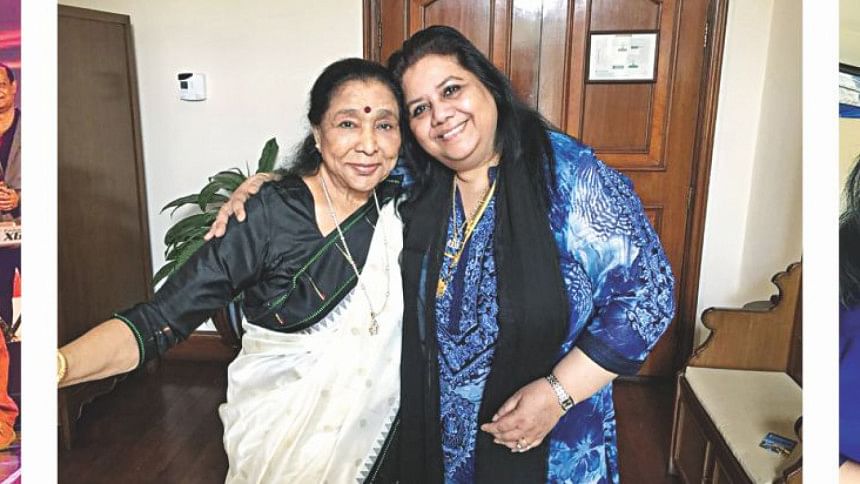
URDU
Jaan-E-Mann Itna Bata Do Mohabbat, Mohabbat Hai Kya
Unki Nazron Se Mohabbat Ka Jo Paigham Mila
Hoey Hoey Dil Dharkay Mein Yeh Kaisay Kahoon
Kaatey Na Katay Rattia Sayyan Intezar Ki
Dinwa Dinwa Mein Ginuun, Kab Aeingay Sanwaria
Hamein Kho Kar Bahut Pachhtao Gay Jab Hum Nahin Haun Gay
Chhanak Gaii Paayal Tau Kya Hoga
Do Dil Ik Doojay Kolon Duur Ho Gaey
Jism Ko Phool Kahun Keh..
Yeh Na Socho, Kal Tha Kya, Aaj Ka Lay Lo Maza
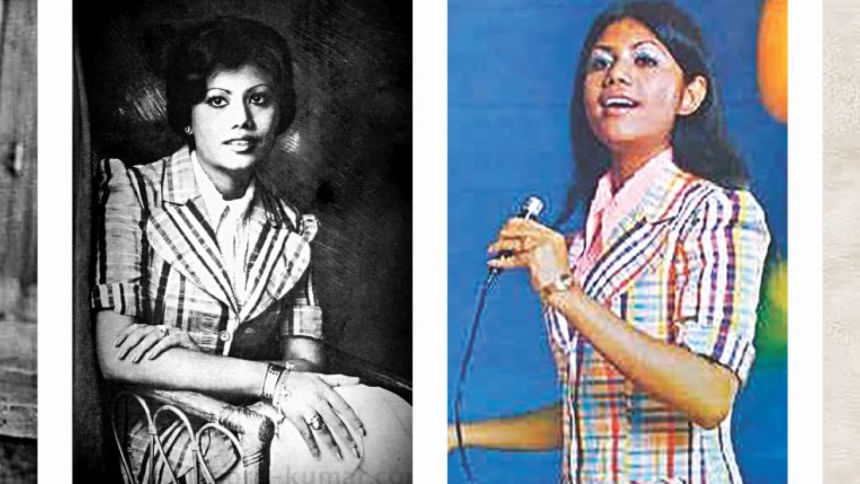
AWARDS
Independence Award
Bangladesh National Film Award
Sheltech Award, Bangladesh
Lux-Channel i Lifetime Performance Award, Bangladesh
Saigal Award, India
Nigar Award, Pakistan
Critics Award, Pakistan
Graduate Award, Pakistan
National council of Music Awards, Pakistan

 For all latest news, follow The Daily Star's Google News channel.
For all latest news, follow The Daily Star's Google News channel. 

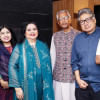
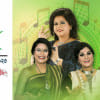


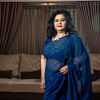


Comments